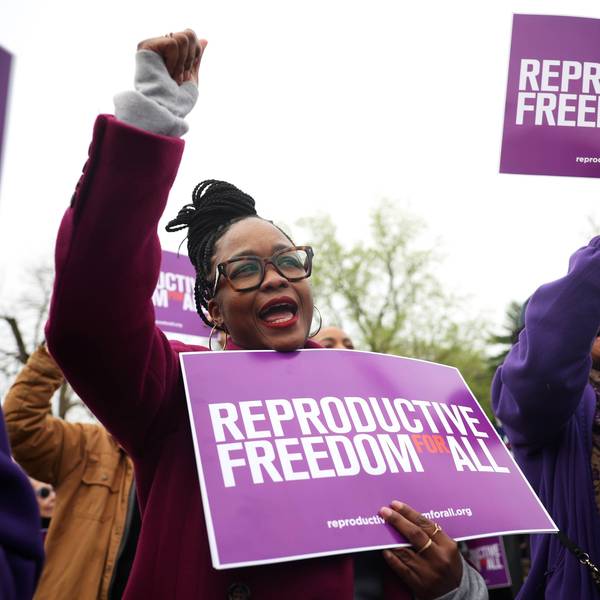What's tough? Life's tough.
What's life? A magazine.
Where do you get it? Newstand?
What's it cost? Ten cents.
Only got a nickel. That's tough, etc.
- A child's saying circa 1945.
Switzerland
and Colorado have at least two things in common. Both have lots of
mountains and some of the citizens of both countries have great concern
about life that some would not consider life. In Colorado it's called
Amendment 48 and will be voted on on November 4 by the citizens of
Colorado. In Switzerland it's called the Gene Technology Act. Consider
Colorado.
Amendment 48 that is to be voted on on November
4 redefines the word "person" and does it by means of an amendment to
the Colorado Constitution rather than resorting to anything as mundane
as medical terminology. Whereas scientists have long believed that
pregnancy begins when a fertilized egg is implanted in the uterus,
Kristi Burton, a 21 year old girl from Peyton, Colorado (who doesn't
believe "there's enough scientific evidence
to prove evolution") is satisfied with redefining the word "person" and
implanting the new definition in the Colorado constitution. Accordingly
she has devoted most of the last two years promoting Amendment 48 that
says: "As used in sections 3, 6, and 25 of Article II of the state
constitution, the terms 'person' or 'persons' shall include any human
being from the moment of fertilization."
After the
amendment was drafted she organized volunteers to help get the
amendment on the ballot and, since the success of that effort, has
devoted her energy to making sure it is passed and becomes law. If her
amendment is adopted by Colorado voters, Kristi will have helped
Colorado redefine a scientific term without the benefit of science.
Following its adoption, a fertilized egg (FE) in Colorado, even though
only seconds old, will be endowed with the same inalienable rights that
all the rest of us enjoy. Since the FE has become a person, if anyone
does anything to interfere with the FE's existence, that person may be
charged with and convicted of murder. If an FE does anything bad it
will be entitled to an attorney if it is charged with a crime. It is
unlikely the FE will do anything bad. It is less unlikely that the
person with whom the FE is living will not do something that might get
Kristi upset and cause her to try to have that person charged with a
crime.
Meanwhile, in Switzerland scientists who have been creating genetically modified food are, according to a recent story in the Wall Street Journal,
forced to consider whether those experiments are humiliating the plants
that are the object of the modification. According to the paper, in the
1990s the Swiss constitution was amended "in order to defend the
dignity of all creatures-including the leafy kind-against unwanted
consequences of genetic manipulation." The amendment was followed by
enactment of a law called the Gene Technology Act. Following its
enactment the government assembled a panel of philosophers, lawyers,
geneticists and theologians whose task was to "establish the meaning of
flora's dignity." The panel was faithful to its task and produced a 22
page report which, according to the WSJ: "stated that vegetation has an
inherent value and that it is immoral to arbitrarily harm plants by,
say, 'decapitation of wildflowers at the roadside without rational
reason.'" Whether a desire to put the decapitated flower on the table
in a vase as an ornament in a mountain cabin would subject the flower
arranger to punishment is something that another panel would probably
be asked to rule on if the flower's executioner could be located.
Beat
Keller is a molecular biologist at the University of Zurich who wanted
to undertake a field trial of genetically modified wheat that resisted
fungus. Dr. Keller had to apply to the state for permission to
undertake the trial because in addressing genetic modification the
panel had concluded that the dignity of plants was safeguarded "as long
as their independence, i.e. reproductive ability and adaptive ability,
are ensured." If the genetic modification rendered the not yet grown
but "to be grown" plant sterile, that would unconstitutionally infringe
on the unborn plant's rights. In his grant application Dr. Keller had
to explain why his efforts would not "disturb the vital functions or
lifestyle" of the wheat. His application was approved in part because
it was determined that by attempting to preserve the wheat from the
adverse effects of the fungus he was in fact enhancing its quality of
life since the fungus, if unchecked, resulted in the wheat's untimely
demise.
Christof Sautter, a botanist at Switzerland's
Federal Institute of Technology was unable to get permission to do a
field trial on transgenic wheat so he moved the project to the United
States. The WSJ quoted him as saying that he'd not mentioned the Swiss
rules to his American colleagues since "They'll think Swiss people are
crazy." He's probably right. On the other hand, if the Swiss are told
of Kristi's constitutional amendment they'll probably think that
Americans are crazy. Both groups would be right.



